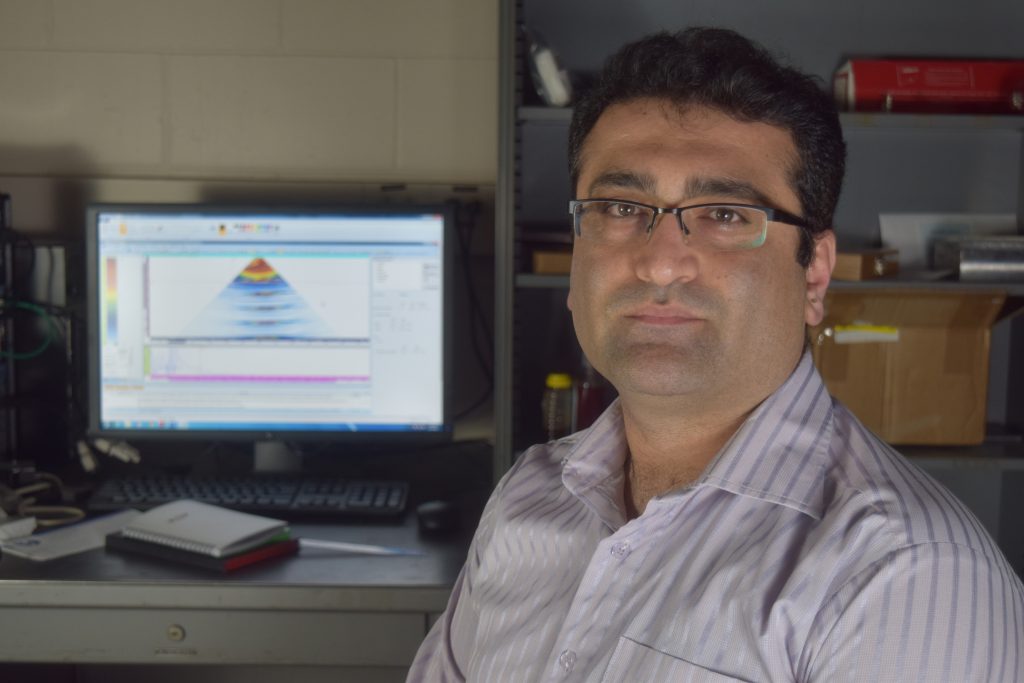
Hossein Taheri will complete his PhD in mechanical engineering at the end of the summer. He is also a recent recipient of the 2018 Young NDT (Nondestructive Testing) Professional Recognition award from the American Society of Nondestructive Testing (ASNT). Taheri, who was co-advised by Timothy Bigelow and Leonard Bond, will work as a nondestructive evaluation (NDE) research engineer for Molex in Chicago after graduation.
Tell us a bit about your background: where are you from and when did you first begin developing an interest in engineering?
I was always interested in physics and engineering problems. I graduated with a BS in mechanical engineering from Shahid Beheshti University in Tehran, Iran. After working in industry for a few years, I decided to pursue my graduate degrees in engineering and attended South Dakota State University for a master of science degree in mechanical engineering.
Why did you choose to attend Iowa State? Why did you choose to study mechanical engineering?
Mechanical engineering is very diverse in research topics and has many connections with other fields of research. My field of research in quality assurance and evaluation needs knowledge in multidisciplinary research. The Center for Nondestructive Evaluation (CNDE) at Iowa State University is the pioneer in NDE research and education in the world and it was always my goal to join this group.
Your research seems to touch on electrical engineering along with mechanical engineering. In what ways do you observe overlap between these two fields?
Concepts in mechanical engineering provide the physical background of NDE, however extracting more information from the testing results requires the advanced signal and data processing techniques and concepts from electrical engineering.
How has your membership in the American Society For Nondestructive Testing advanced your professional goals?
Membership in professional societies is a very beneficial way to get involved in the advanced techniques and research in each field. Membership and activities in ASNT helped me to expand my knowledge in NDE and learn from other people in the field.
Tell us a bit about what your research involves
My research work with Iowa State’s CNDE is about using NDE techniques for in-line quality monitoring for 3D printed metal parts. The goal of my research was to evaluate the quality of the 3D printed parts during the manufacturing process.
Based on your experience, what advice would you have for an incoming college student who is interested in engineering?
Try to explore your interests in the engineering field. At the end of the day what matters most is skills that you need to acquire. Specifically: problem solving, the ability to analyze, good communication skills – both written and verbal, punctuality, the ability to work in teams, initiative, determination, and resilience.